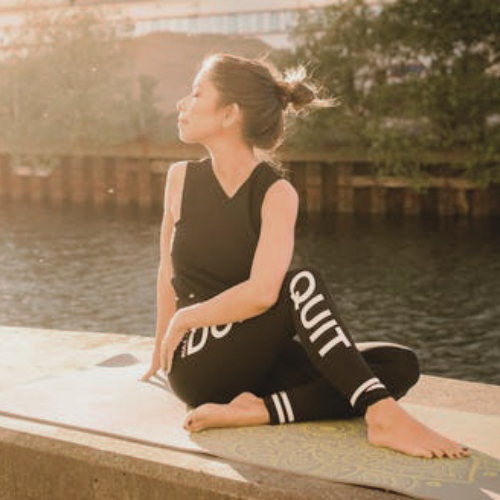Yoga for beginners: the most important information
Here, through the following article, the most important information that can be related to the subject of yoga for beginners.
In the following article, we will point out the most important tips and advice for practicing yoga for beginners:
Yoga for Beginners: Tips and Tricks
If you are a beginner yoga person, here are the most important tips and guidelines that may help you practice it for the first time:
1. Recording notes
During the yoga lessons you will receive a lot of information and wisdom that it is best to record and remember, whether your favorite yoga poses, breathing techniques, or even tips in the field of nutrition, correct posture, walking and more, all this you will hear from the trainer and you better not forget it.
2. Create a place for yoga at home
Even if you practice it in group lessons outside the home, it is also preferable to practice yoga in your own surroundings. While you can practice poses and flexibility between lessons in the center, you can practice more at home.
Many of those who go to weekly yoga classes become an integral part of their lives and do many exercises at home in the morning, evening and even on the weekends.
3. Setting goals
Everyone's workout routine depends a lot on the goals they want, so define well:
The amount of time you are willing to devote to training.
Techniques you want to focus on.
Your physical weaknesses and the physical and psychological goals you aspire to.
4. Attention to self
Breathing is a powerful tool for controlling stress, and in yoga lessons for beginners you will learn to use this tool and develop respiratory awareness by which sensations such as: anxiety and tension can be controlled. It is an integral part of your daily behaviour.
5. Arrive early for yoga classes
Try to get to the yoga class 10-15 minutes before the lesson, the yoga class doesn't have to be in the 90th minute, so you can prepare physically for the class, and most importantly, you'll have enough time to break free from the day and relax before the class.
6. Do yoga on an empty stomach
It is recommended to attend the yoga class on an empty stomach, so make sure that the class time is between two and a half to three hours after the meal, practicing yoga on an empty stomach ensures an easy and more effective training.
7. Listen to the body
Although different yoga poses involve a lot of tension and burden on the tissues, yoga is not supposed to cause pain. .
8. No competition
Yoga is a non-competitive physical activity, so avoid comparing your performance with the performance of others in terms of quality of movement, flexibility and ability to handle effort, and compare your ability with your previous achievements and not with others because stretching to your maximum can lead to injury.
9. Don't do yoga alone
If you are practicing yoga at home by watching a DVD or a home training book, it is best that you sometimes join the lessons or ask for the accompaniment of a professional trainer, because it is very important to monitor someone who is qualified to train you. Learning from books or tapes alone is not enough because the trainer who sees Only your exercises can help you correct your movements and postures that cannot be noticed when working out alone.
10. Relax
It is important to relax ten minutes before the end of the training, as such relaxation may allow the muscles, joints and tendons to recover from the burden of the different positions that were practiced during this type of sports.
Types of yoga practitioners
Yoga practitioners fall into two categories:
Those who go to practice yoga in groups take place in various designated centers and even gyms.
who practice yoga at home through written instructions or DVDs.
